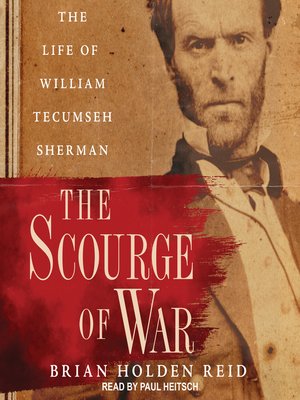The Scourge of War
audiobook (Unabridged) ∣ The Life of William Tecumseh Sherman
By Brian Holden Reid

Sign up to save your library
With an OverDrive account, you can save your favorite libraries for at-a-glance information about availability. Find out more about OverDrive accounts.
Find this title in Libby, the library reading app by OverDrive.



Search for a digital library with this title
Title found at these libraries:
| Library Name | Distance |
|---|---|
| Loading... |
In The Scourge of War, preeminent military historian Brian Holden Reid offers a deeply researched life and times account of William Tecumseh Sherman. By examining his childhood and education, his business ventures in California, his antebellum leadership of a military college in Louisiana, and numerous career false starts, Holden Reid shows how unlikely his exceptional Civil War career would seem. He also demonstrates how crucial his family was to his professional path, particularly his wife's intervention during the war. He analyzes Sherman's development as a battlefield commander and especially his crucial friendships with Henry W. Halleck and Ulysses S. Grant. In doing so, he details how Sherman overcame both his weaknesses as a leader and severe depression to mature as a military strategist.
After the war, Sherman became a popular figure in the North and the founder of the school for officers at Fort Leavenworth, Kansas, known as the "intellectual center of the army." Holden Reid argues that Sherman was not hostile to the South throughout his life and only in later years gained a reputation as a villain who practiced barbaric destruction, particularly as the neo-Confederate Lost Cause grew and he published one of the first personal accounts of the war.
After the war, Sherman became a popular figure in the North and the founder of the school for officers at Fort Leavenworth, Kansas, known as the "intellectual center of the army." Holden Reid argues that Sherman was not hostile to the South throughout his life and only in later years gained a reputation as a villain who practiced barbaric destruction, particularly as the neo-Confederate Lost Cause grew and he published one of the first personal accounts of the war.







